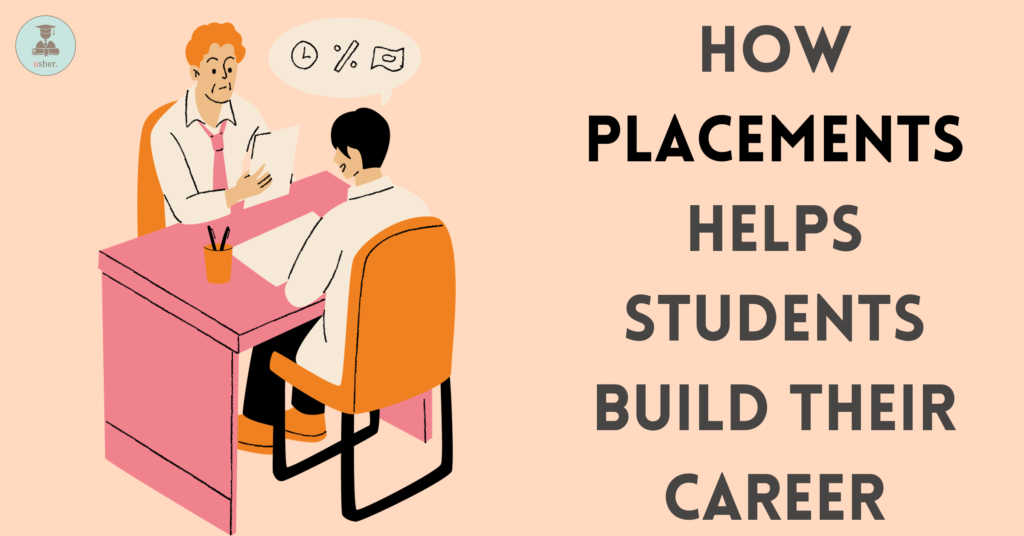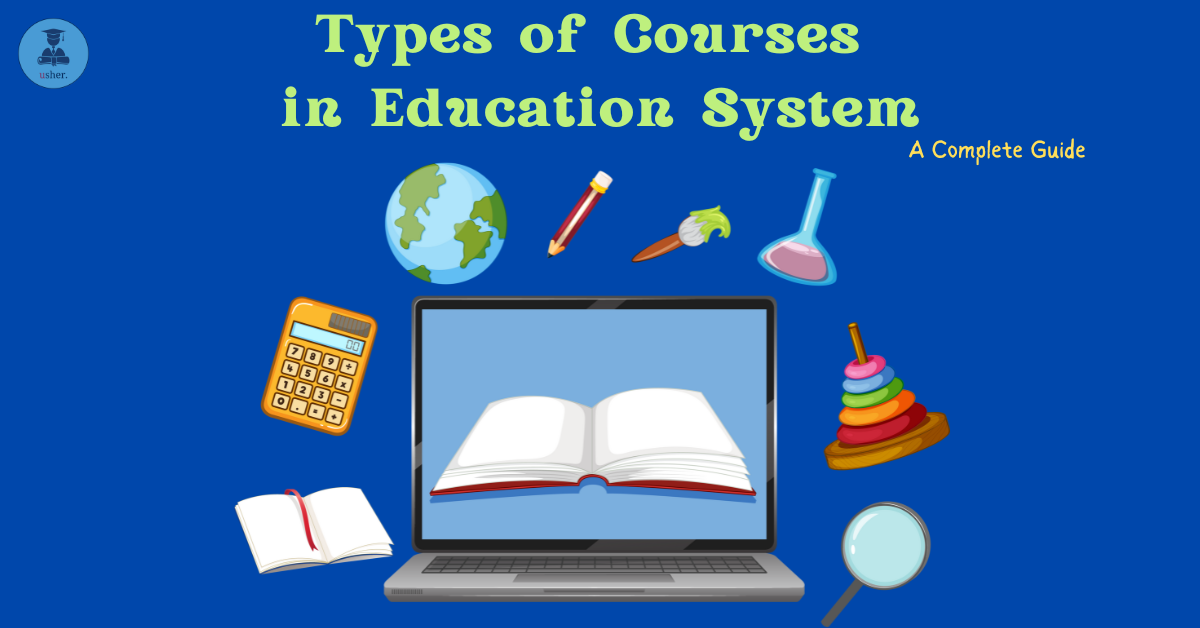What do you look into when considering a college or university?
When picking the right college, I generally look to see whether or not the institution offers placements.
(This is the response I received from 90% of the students when I asked them this question.)
A student spends three to four years studying in order to get into a reputable company.
There are two ways to go about this: in the first, students may apply to companies and go to interviews on their own.
The second is the placement procedure, which your college uses to put you in touch with the companies.
Well, both options have their own advantages and disadvantages. The choice depends on the individual student’s preferences and goals in terms of finding a job after graduation.
What are College Placements?
College placements are a service provided by the college to help students secure job opportunities with reputable companies.
It involves the college acting as a mediator between students and potential employers, arranging interviews and connecting students with relevant job openings.
This can be beneficial for students who prefer a more structured approach to job hunting and want access to a wider range of job opportunities.
Role of Placements in Students Lives
Placements help students apply what they learn in the classroom to the real world, i.e., they bridge the gap between theoretical knowledge and practical application.
Placements have become an integral part of higher education, providing students with valuable practical experience and exposure to real-world work environments.
They offer a unique opportunity for students to apply their theoretical knowledge in a professional setting and gain industry-specific skills.
Moreover, placements also play a crucial role in enhancing employability rates and opening doors to promising career prospects.
What are the Benefits of Placements for Students?
Placements open a plethora of opportunities and allow students to build a strong professional network. Some of the advantages of placements are discussed below:
Real-World Application of Knowledge
Placements provide a platform for students to apply their theoretical knowledge in practical, real-world scenarios. This hands-on experience bridges the gap between academic learning and its practical application, making their education more meaningful.
Skill Development
Students acquire and enhance a wide array of skills during placements, including technical skills specific to their field and soft skills like communication, teamwork, problem-solving, and adaptability. These skills are invaluable in any career and are honed through practical experience.
Decision-Making Insights
Working in a professional setting during placements allows students to gain valuable insights into the decision-making processes of organizations. They can observe how different factors are taken into account when making important business decisions. This firsthand experience helps students develop critical thinking and problem-solving skills that are essential for success in their future careers.
Industry Insights and Exposure
During placements, students have the opportunity to gain industry insights and exposure to real-world challenges and trends. This firsthand knowledge allows them to understand the inner workings of their chosen field and make informed decisions about their future career paths. Exposure to professionals in the industry can lead to valuable networking opportunities and potential job offers upon graduation.
Networking Opportunities
Networking opportunities provide students with the chance to connect with professionals who can offer guidance, mentorship, and potential job opportunities. Building a strong professional network can be instrumental in advancing one’s career and opening doors to new opportunities. Networking allows students to learn from the experiences of others and gain valuable insights into different industries and career paths.
Testing Career Interests
Participating in placements allows students to test their career interests and gain valuable insights into the industry they are considering. This firsthand experience can help them make informed decisions about their future career paths and increase their chances of finding a job that aligns with their passions and goals.
Career Clarity and Direction
Through placements, students can gain hands-on experience in their desired field and determine if it aligns with their career goals. These opportunities provide a real-world perspective and help students make informed decisions about their future.
Career services and counseling offered by colleges and universities can assist students in exploring various career paths and identifying their strengths and interests, ultimately leading to greater clarity and direction in their professional journey.
Confidence Building
Successfully navigating a placement can significantly boost a student’s confidence. Conquering challenges, meeting deadlines, and delivering on tasks in a professional setting instills a sense of accomplishment and self-assurance.
Professional References
In addition, participating in placements allows students to establish professional relationships and gain valuable references from supervisors or mentors in their chosen field.
These references can greatly enhance their job applications and give them a competitive edge over other candidates.
Financial Benefits
Some placements offer financial compensation, which can help students offset the costs of their education or provide them with additional income. This can alleviate financial stress and allow students to focus more on their studies without worrying about their expenses.
Moreover, the financial benefits gained from a placement can also contribute to building a strong foundation for future financial stability.
Learning Company Culture
Each organization has its unique culture. Placements provide students with an insight into how different companies operate and the values they prioritize. This exposure helps students understand the work environment they thrive in and the type of company culture they prefer.
Potential Job Offers
A successful placement can also lead to potential job offers. Employers often use placements as a way to identify talented individuals who would be a good fit for their organization. By impressing employers with their skills and work ethic during a placement, students increase their chances of being offered a job upon graduation. This not only provides them with immediate employment opportunities but also sets them on a path towards long-term career success.
Long term Benefits of Placements for Students
The long term benefits of placements extend far beyond immediate job prospects and into the realm of professional development.
Personal Growth and Adaptability
Navigating placements often involves stepping out of one’s comfort zone. This experience fosters personal growth, resilience, and adaptability as students learn to navigate unfamiliar environments and handle new challenges.
Enhanced Resume/CV
The practical experience gained during placements significantly boosts a student’s resume. It demonstrates their ability to apply learned knowledge in a professional context, making them more attractive to potential employers.
Improved Employability
Employers highly value the transferable skills that students can develop through participation in placements, such as teamwork, communication, and problem-solving. This increased employability can open up a wider range of job opportunities and increase the likelihood of securing a desired position in the future.
Skill Continuity and Development
Participating in placements allows students to not only develop transferable skills but also to continuously build upon and refine their existing skill set.
This ensures that they stay up-to-date with industry trends and advancements, making them more adaptable and valuable in the professional world.
Placements provide a platform for students to identify areas for improvement and further enhance their skills through practical application and feedback from experienced professionals.
Professional Reputation
In addition, placements offer students the opportunity to establish a professional reputation in their chosen field.
By working alongside industry professionals and showcasing their abilities, students can gain recognition and credibility among potential employers.
This can lead to increased job prospects and networking opportunities, ultimately benefiting their future career endeavors.
A strong professional reputation can also open doors for mentorship and guidance from established professionals, allowing students to further develop their skills and knowledge.
Refined Career Goals
Placements can help individuals clarify and refine their career goals. By observing and learning from industry professionals, students can gain a better understanding of the various paths and opportunities available in their chosen field.
This exposure can help them make informed decisions about their future career trajectory and focus their efforts on areas that align with their interests and strengths.
Continuous Learning and Growth
The experiences and lessons learned during placements serve as a platform for continuous learning. Students are often inspired to pursue further education or training to enhance their skills and knowledge in their chosen field.
Leadership Opportunities
Students who have had previous work experience in their field may also have the opportunity to take on leadership roles because they have already been exposed to the challenges and responsibilities that they will face in their field when they are working in the real world.
Feel free to share your story about how placement experiences have contributed to your personal growth and development. Your story may inspire others to take advantage of similar opportunities and continue their own growth journey.
So, in conclusion, all I want to say to the students who are going for college or university placements is to learn and embrace the placement opportunities.
Embracing placements goes beyond a resume. It opens the door to practical wisdom, strong networks, and rapid career success. The importance of these experiences goes beyond the placement. They underpin successful careers. Placements give students skills, insights, contacts, and a clearer career path. These chances help people enter the workforce as confident, adaptive, and skilled workers.
Every student nearing a placement opportunity: embrace it. Explore, study, and network, and allow this opportunity to shape your future. Consider placements an investment in your future, not just an obligation. Your job success and satisfaction will depend on the talents and contacts you develop.
All the Best!




